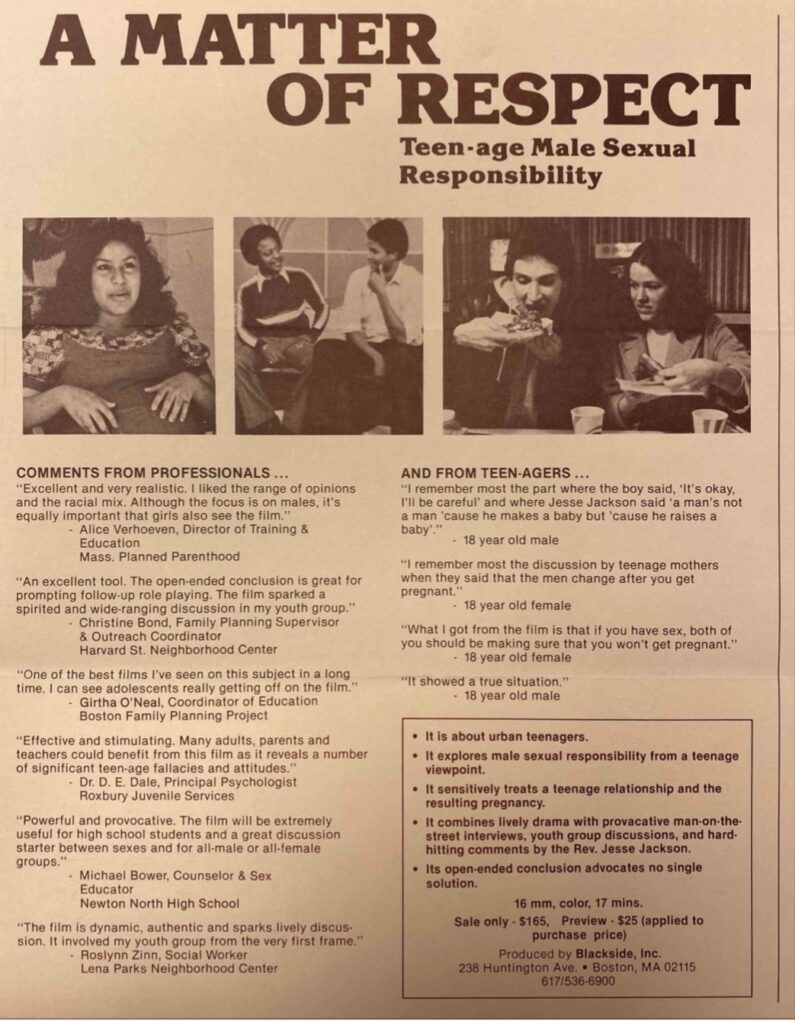
Film & Media Archive Receives Grant to Preserve Film
The Washington University Libraries’ Film & Media Archive has been awarded a grant of $5,833.23 by the National Film Preservation Foundation (NFPF) to preserve the 1980 sex education film A Matter of Respect. The NFPF awarded grants to 29 institutions across the United States.
A Matter of Respect was produced by Blackside, Inc., the Boston area TV and film production company founded in 1968 by St. Louis native and Washington University alumnus Henry Hampton. The company started by making sponsored films and slideshows for companies and governmental agencies. A Matter of Respect is a prime example of that mode of filmmaking. Blackside became the largest African American-operated film company of its time thanks to a string of PBS documentaries in the 1980s and 1990s, including Eyes on the Prize (1987-1990), its groundbreaking look at the Civil Rights movement.
Written and directed by Blackside employee Mark Harris, A Matter of Respect extolled young men to accept responsibility in pregnancies. The film’s sponsoring government agency sought to address the sexual revolution of the 1970s, which encouraged young people to take control of their bodies but also led some young men to disavow their role in getting their partners pregnant. The film combines a dramatic narrative of a young couple falling in and out of love after they get pregnant with documentary footage of real teens talking about their views on male responsibility in sexual relationships, and a speech from Jesse Jackson on the topic.
A Matter of Respect is the third early film by Blackside that the Film & Media Archive has preserved thanks to the NFPF’s financial support. Available for viewing online, the other two films are Code Blue(1972), made to recruit young persons of color into the medical profession, and Listen to a Stranger: An Interview with Gordon Parks(1973), in which the famous photographer and filmmaker talks about his life and work.
Once the preservation and digitization of A Matter of Respect are complete, the Film & Media Archive will make the film widely available for educational purposes. It will be streamed through Washington University’s unrestricted online repository and made accessible on Vimeo. Access copies will be created for loan to outside institutions wishing to use the film for educational purposes.
For more information about the film and the project, contact Curator of Film & Media Andy Uhrich.

